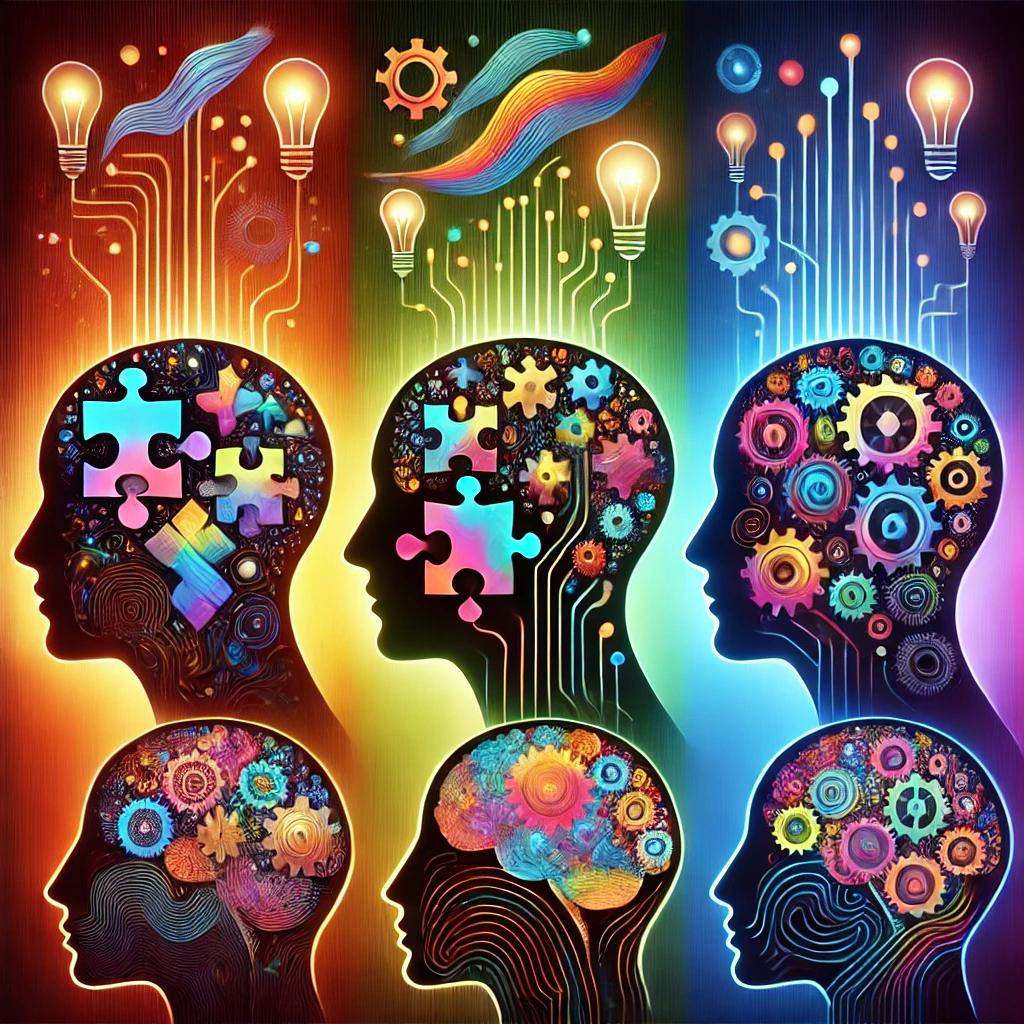The Neurodiversity Paradigm: A New Way to See ADHD

The neurodiversity paradigm is reshaping how we think about ADHD. Rather than viewing it as a disorder or deficit, this approach sees ADHD as a natural variation in brain function—one that comes with both strengths and challenges. Whether you're a parent of a child with ADHD, a loved one offering support, an educator working with neurodiverse students, or an adult managing ADHD yourself, the neurodiversity paradigm provides a more balanced and empowering perspective.
From Deficit to Difference
Traditional views of ADHD focus on what's "wrong" with the brain—characterizing attention difficulties, impulsivity, or hyperactivity as deficits. However, the neurodiversity paradigm reframes ADHD as a difference in how people think, not a flaw. ADHD brains function differently, which can lead to unique abilities when supported in the right environments.
For example:
- Hyperactivity is seen as intensity or a different pace, recognizing the high energy that, when harnessed, can result in remarkable productivity.
- Attention deficits are understood as interest-based attention—meaning deep focus on tasks that genuinely captivate, even if focusing on less engaging tasks is harder.
This neurodiversity paradigm shift helps parents, educators, and individuals with ADHD see these traits not as problems, but as differences that can bring strengths in the right context.
Interest-Based Motivation
One key insight from the neurodiversity paradigm is the recognition that people with ADHD are highly motivated by tasks they find interesting. When engaged in something they love, focus and productivity skyrocket. However, when a task feels boring or unimportant, it's much harder to stay engaged. This isn't laziness—it’s simply how ADHD brains are wired.
Practical tips:
- For parents: Discover what excites your child. Use those interests to build confidence and gradually tackle less appealing tasks.
- For educators: Incorporate engaging, creative projects to capture students' attention, making learning more effective.
- For adults with ADHD: Organize your day around activities you love, and break tedious tasks into smaller, manageable steps, rewarding yourself along the way.
Strengths of ADHD
The neurodiversity paradigm also emphasizes the strengths that often come with ADHD, including:
- Creativity and divergent thinking: ADHD individuals tend to think outside the box and come up with innovative solutions.
- Hyperfocus: When deeply interested in something, you can focus intensely and achieve remarkable things.
These traits are especially valuable in fields like art, design, entrepreneurship, and problem-solving roles, where creativity and out-of-the-box thinking are highly valued. Recognizing and nurturing these abilities is crucial.
Time Perception Differences: Understanding ADHD
Another important aspect of the neurodiversity paradigm is recognizing that people with ADHD often experience time differently. This isn’t laziness or a lack of effort; it’s a brain-based difference in how time is processed.
For loved ones, it's helpful to understand:
- Time blindness: This makes it difficult to gauge how much time has passed.
- Urgency with deadlines: Tasks may feel urgent only when a deadline is close. This might seem like procrastination but is actually how the ADHD brain prioritizes.
How to support:
- Offer gentle reminders and assist with time management.
- Be patient—time perception challenges are part of how ADHD brains work, not a sign of laziness.
By understanding these time perception differences, loved ones can better support those with ADHD in a compassionate and productive way.
Challenges in a Neurotypical World
While ADHD has its strengths, it also comes with challenges, particularly in a world designed for neurotypical people. The neurodiversity paradigm doesn’t overlook these challenges but encourages finding ways to work with, rather than against, ADHD traits.
Common challenges include:
- Social struggles: High intensity can overwhelm others or lead to misunderstandings.
- Time management: ADHD brains often struggle with managing time, making deadlines and schedules harder to meet.
- Masking: Trying to hide ADHD traits to fit into a neurotypical world can be exhausting and damaging over time.
Practical tips for overcoming challenges:
- For educators and parents: Provide structure and strategies for managing time, such as using visual timers or breaking tasks into smaller steps, while allowing flexibility.
- For adults with ADHD: Embrace tools like apps and reminders to manage tasks, but also seek out work environments that prioritize creativity and flexibility over rigid schedules.
A Balanced Approach
The neurodiversity paradigm encourages us to stop seeing ADHD as something that needs to be "fixed." Instead, it's about acknowledging both the strengths and challenges of ADHD and finding ways to work with the brain’s natural tendencies.
- For parents: Support your child’s strengths by providing environments where they can thrive, focusing on what excites them.
- For educators: Design classrooms that cater to neurodiverse thinking, using interactive and engaging materials.
- For adults with ADHD: Focus on your passions and seek out careers or lifestyles that allow you to harness your unique talents.
The key takeaway from the neurodiversity paradigm is that ADHD isn’t a disorder—it’s simply a different way of thinking. By shifting from a deficit-based mindset to a more balanced and affirming view, we can better support individuals with ADHD in reaching their full potential.
Embracing the Neurodiversity Paradigm
Embracing the neurodiversity paradigm helps us all see ADHD in a new light. It’s about recognizing that ADHD brings both strengths and challenges, and with the right support and understanding, individuals with ADHD can thrive. Whether you’re a parent, educator, or an adult with ADHD, this new perspective invites us to celebrate differences and create environments where neurodiverse individuals can succeed.
Ask yourself:
- For parents or teachers: How can you shift your approach to better support the strengths of ADHD in the children or students in your life?
- For adults with ADHD: What strengths of your ADHD can you focus on this week to help you succeed?
By embracing the neurodiversity paradigm, we can create a more inclusive and supportive world for everyone.





